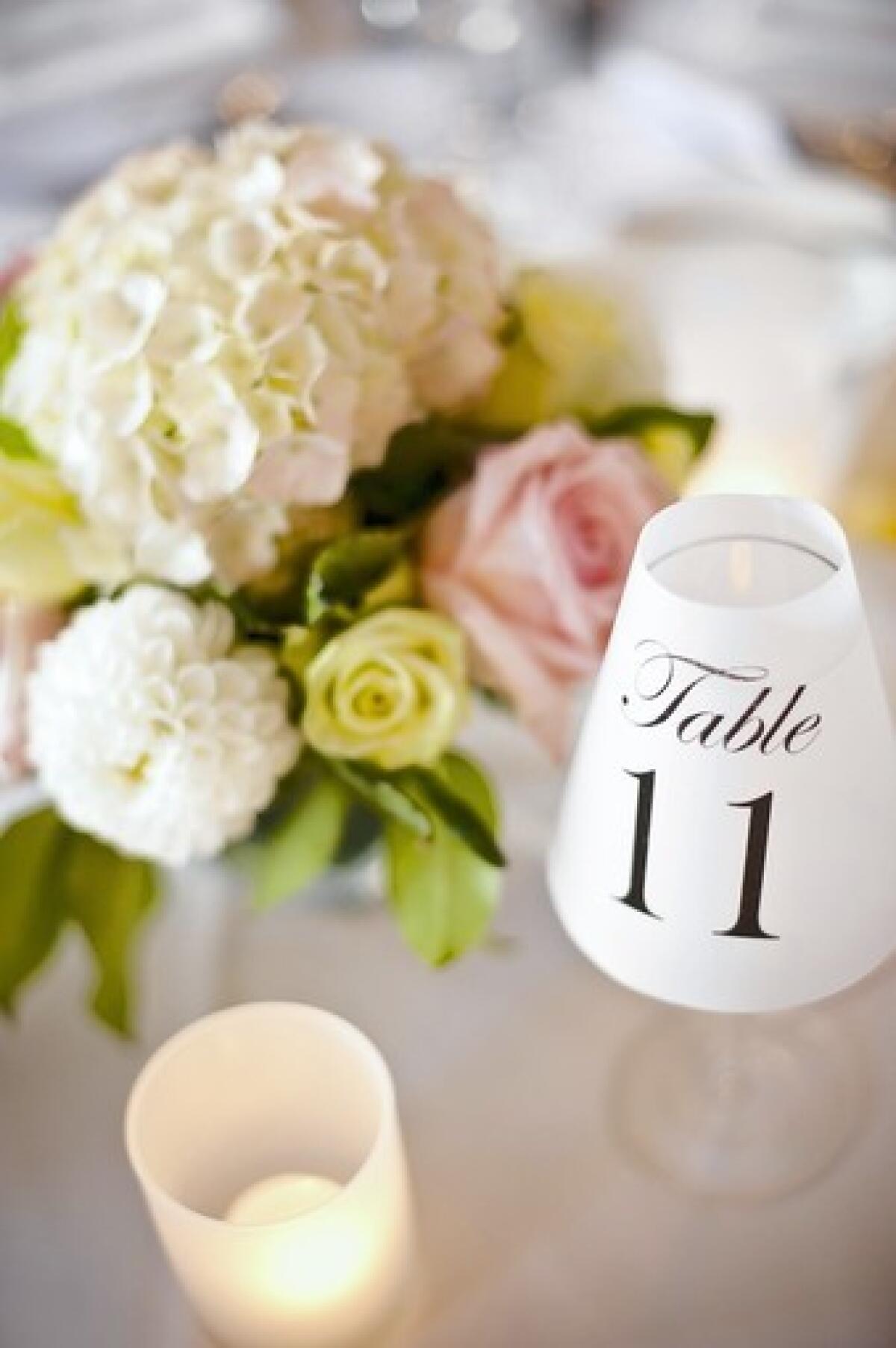Key to a successful wedding: planning

The ring’s been placed on the finger, the families have been called and the Facebook statuses have been updated. Now what? How exactly do couples begin to plan a wedding?
“First, you should kind of have a blueprint, and the blueprint starts with how many guests you’re going to have,” says wedding planner Yifat Oren, who has worked on nuptials for celebrities such as Drew Barrymore, Reese Witherspoon and Molly Sims.
The guest list should be written with a budget in mind, says Kristen Koch, former senior editor at TheKnot.com, and that in turn will shape a discussion about potential locations. On the other hand, she points out, each of these factors has varying weight for different couples; for example, people who favor a location from the outset might be willing to trim the number of guests.
Both Oren and Koch suggest that couples use online budgeting software throughout the planning process to keep expenditures in check while still developing an event with a personal look and feel.
Use your budget to really figure out what your priorities are, Oren says. “I know people who are avid art enthusiasts, so photography is so important to them, or [they] are big foodies so the food is so important to them, and they don’t care what kind of flowers are on the table.”
The software is also handy because wedding planning isn’t usually something that is rushed. Although there are plenty of couples who opt for a day at City Hall and Oren says her clients average between six and eight months of planning, the Knot reports that most couples are engaged 14 months before the walk down the aisle.
While timelines can be altered on a case-by-case basis, the Knot’s wedding experts usually recommend that a gown be purchased eight to 10 months before the wedding, that florists are selected six to eight months before, and that invitations are mailed two to three months prior to the big day.
“Your florists, your planners, your photographers — all these key people who are going to bring your wedding to life and take lasting memories of it — they are going to book up a year or more if they are very in demand,” Koch says. “It’s such an important day and so personal that it’s important to have the very best. You’re spending a lot of money on these elements and much more money than any event or party you’ve [probably] ever thrown, so you want to make sure that you know the people and you’re happy with them.”
If all this sounds too time-consuming and overwhelming, there is always the option of hiring a professional.
“Planning a wedding is a full-time job and nobody really understands that until they get in the middle of it,” Koch says. “Couples sometimes overrate how expensive a planner is. You can get a full-service planner who is with you from start to finish, and often they can save you money too because they work with so many people in the industry. If you’re not going to have a planner, have a day-of coordinator” be the point person during the ceremony and reception.
Wedding planners can vary on cost depending on their time commitment, years of experience and other factors, but the Knot reports that its users spent an average of $1,753 on wedding-planner services in 2011.






